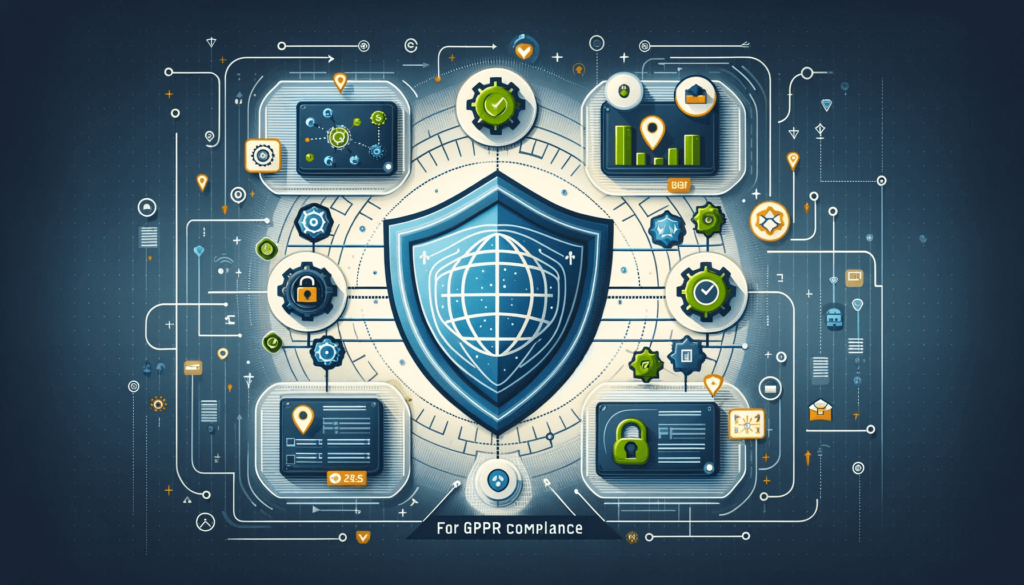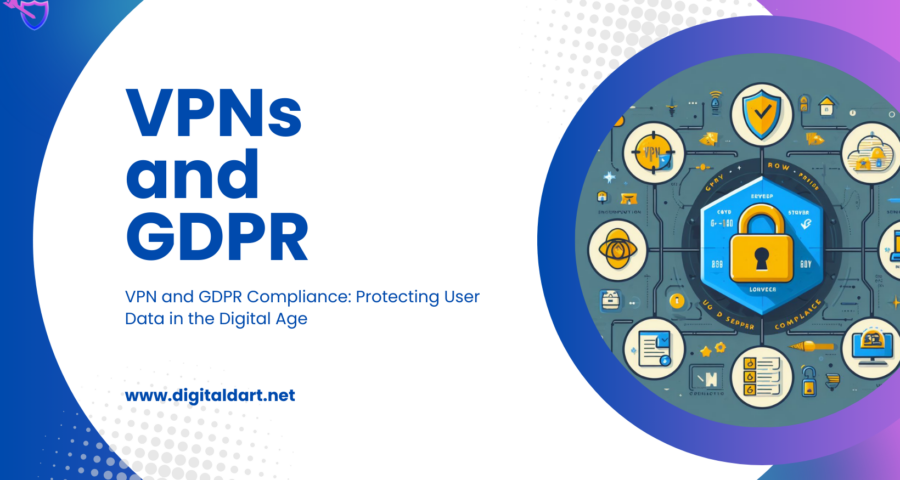In today’s dynamic digital landscape, where data breaches and privacy concerns are prevalent, the General Data Protection Regulation (GDPR) stands as a crucial framework for safeguarding user information. As businesses grapple with the complexities of compliance, Virtual Private Networks (VPNs) have emerged as powerful tools to fortify data protection efforts. In this comprehensive exploration, we’ll delve into the synergy between VPN and GDPR, shedding light on how these two elements work in tandem to ensure the confidentiality and integrity of user data.
Introduction
In the era of data-driven technologies, GDPR has become a beacon of user rights and data protection. The exponential growth in data collection and processing necessitates robust measures to secure sensitive information. This introduction sets the stage for understanding the critical role that VPNs play in aligning businesses with GDPR requirements.

Understanding GDPR Requirements
To appreciate the significance of VPNs in GDPR compliance, it’s essential to grasp the key principles of the regulation. GDPR mandates that businesses adhere to principles such as lawfulness, fairness, and transparency in data processing, purpose limitation, data minimization, accuracy, storage limitation, and integrity and confidentiality. This section provides a foundational understanding, emphasizing the need for a comprehensive approach to data protection.
VPNs and Data Encryption
One of the fundamental aspects of GDPR compliance is the protection of data during transmission. VPNs, through their encrypted communication channels, provide a robust solution to this requirement. Here, we demystify the workings of VPNs and highlight the pivotal role of data encryption in securing user data, ensuring it remains confidential and unaltered during transit.
GDPR Compliance Challenges
Despite the clear guidelines set by GDPR, businesses face challenges in achieving and maintaining compliance. This section identifies common pitfalls, exploring the complexities of ensuring compliance in a rapidly evolving digital environment. Real-world case studies illustrate the consequences of non-compliance, underscoring the need for stringent data protection measures.
Role of VPNs in Achieving GDPR Compliance
With a solid foundation in GDPR principles and challenges, we delve into how VPNs serve as guardians of user data. By ensuring confidentiality and anonymizing user information, VPNs play a crucial role in mitigating the risk of data breaches. This section elaborates on the specific ways in which VPNs contribute to GDPR compliance.
Selecting the Right VPN for GDPR Compliance
Not all VPNs are created equal. To effectively leverage the benefits of VPNs for GDPR compliance, businesses must carefully select a service that aligns with the regulation’s standards. This section provides a comprehensive guide on evaluating different VPN providers, highlighting key criteria and features essential for GDPR compliance.

Best Practices for Implementing VPNs for GDPR Compliance
Implementation is key to the success of any compliance strategy. Here, we outline best practices for businesses looking to seamlessly integrate VPNs into their GDPR compliance framework. Employee training, regular updates, and proactive monitoring are emphasized as essential components of a robust data protection strategy.
Legal Implications and Compliance Frameworks
Understanding the legal implications of GDPR non-compliance is crucial for businesses. This section explores the consequences of failing to adhere to the regulation and discusses how using a VPN can provide an additional layer of legal protection. An overview of international data protection frameworks further enriches this exploration.
Future Trends in VPN and GDPR Compliance
The digital landscape is in a constant state of evolution. This section provides insights into emerging technologies impacting VPNs and anticipates changes in GDPR regulations. Businesses are encouraged to stay vigilant and adapt to these trends to ensure ongoing compliance and data protection.
Conclusion for VPN and GDPR compliance
In conclusion, we recap the symbiotic relationship between VPN and GDPR compliance. The call to action urges businesses to prioritize data protection, adapt to evolving regulations, and embrace the continuous evolution of VPN technologies. As organizations navigate the intricate landscape of GDPR compliance, integrating VPNs into their data protection arsenal becomes not just a choice but a strategic imperative. By understanding the nuances of this relationship, businesses can fortify their defenses, ensuring a secure and compliant digital future.
With GDPR serving as a cornerstone for user data protection, and VPNs emerging as powerful allies in this endeavor, businesses can confidently navigate the digital landscape, safeguarding user privacy and upholding the principles of data protection.


Leave a Reply